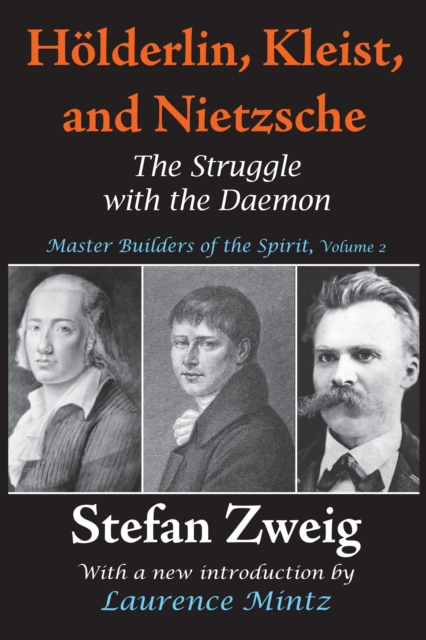
Holderlin, Kleist, and Nietzsche : The Struggle with the Daemon PDF
by Stefan Zweig
Part of the Master Builders of the Spirit series
Description
This is the second volume in a trilogy in which Stefan Zweig builds a composite picture of the European mind through intellectual portraits selected from among its most representative and influential figures.
In 'Hoelderlin, Kleist, and Nietzsche', Zweig concentrates on three giants of German literature to portray the artist and thinker as a figure possessed by a powerful inner vision at odds with the materialism and scientific positivism of his time, in this case, the nineteenth century. Zweig's subjects here are respectively a lyric poet, a dramatist and writer of novellas, and a philosopher.
Each led an unstable life ending in madness and/or suicide and not until the twentieth century did each make their full impact.
Whereas the nineteenth-century novel is socially capacious in terms of subject and audience, the three figures treated here are prophets or forerunners of modernist ideas of alienation and exile.
Hoelderlin and Kleist consciously opposed the worldly harmoniousness of Goethe's classicism in favor of a visionary inwardness and dramatisation of the subjective psyche.
Nietzsche set himself as a destroyer and rebuilder of philosophy and critic of the degradation of the German spirit through nationalism and militarism. Zweig's choice of subjects reflects a division in his own soul.
The image of Goethe recurs here as the ultimate upholder of Zweig's own ideals: scientist and artist, receptive to world culture, supremely rational and prudent.
Yet Zweig was aware that Hoelderlin, Kleist, and Nietzsche were more daring explorers of the dangerous and destructive aspects of man that needed to be seen and comprehended in the clarifying light of poetry and philosophy.
Information
-
Download - Immediately Available
- Format:PDF
- Pages:340 pages
- Publisher:Taylor & Francis
- Publication Date:05/07/2017
- Category:
- ISBN:9781351515412
Other Formats
- Hardback from £145.00
- EPUB from £41.39
- Paperback / softback from £43.25
Information
-
Download - Immediately Available
- Format:PDF
- Pages:340 pages
- Publisher:Taylor & Francis
- Publication Date:05/07/2017
- Category:
- ISBN:9781351515412









